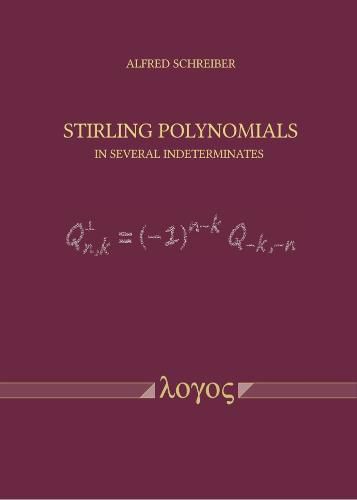Readings Newsletter
Become a Readings Member to make your shopping experience even easier.
Sign in or sign up for free!
You’re not far away from qualifying for FREE standard shipping within Australia
You’ve qualified for FREE standard shipping within Australia
The cart is loading…






The classical exponential polynomials, today commonly named after E. ,T. Bell, have a wide range of remarkable applications in Combinatorics, Algebra, Analysis, and Mathematical Physics. Within the algebraic framework presented in this book they appear as structural coefficients in finite expansions of certain higher-order derivative operators. In this way, a correspondence between polynomials and functions is established, which leads (via compositional inversion) to the specification and the effective computation of orthogonal companions of the Bell polynomials. Together with the latter, one obtains the larger class of multivariate “Stirling polynomials’. Their fundamental recurrences and inverse relations are examined in detail and shown to be directly related to corresponding identities for the Stirling numbers. The following topics are also covered: polynomial families that can be represented by Bell polynomials; inversion formulas, in particular of Schloemilch-Schlafli type; applications to binomial sequences; new aspects of the Lagrange inversion, and, as a highlight, reciprocity laws, which unite a polynomial family and that of orthogonal companions. Besides a Mathematica® package and an extensive bibliography, additional material is compiled in a number of notes and supplements.
$9.00 standard shipping within Australia
FREE standard shipping within Australia for orders over $100.00
Express & International shipping calculated at checkout
The classical exponential polynomials, today commonly named after E. ,T. Bell, have a wide range of remarkable applications in Combinatorics, Algebra, Analysis, and Mathematical Physics. Within the algebraic framework presented in this book they appear as structural coefficients in finite expansions of certain higher-order derivative operators. In this way, a correspondence between polynomials and functions is established, which leads (via compositional inversion) to the specification and the effective computation of orthogonal companions of the Bell polynomials. Together with the latter, one obtains the larger class of multivariate “Stirling polynomials’. Their fundamental recurrences and inverse relations are examined in detail and shown to be directly related to corresponding identities for the Stirling numbers. The following topics are also covered: polynomial families that can be represented by Bell polynomials; inversion formulas, in particular of Schloemilch-Schlafli type; applications to binomial sequences; new aspects of the Lagrange inversion, and, as a highlight, reciprocity laws, which unite a polynomial family and that of orthogonal companions. Besides a Mathematica® package and an extensive bibliography, additional material is compiled in a number of notes and supplements.